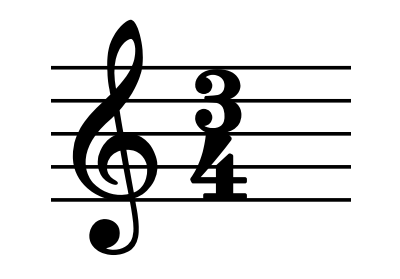♩
1
♩
Quarter note
♯
Sharp - raises the note a 1/2 step
𝆑
Forte - loud
♭
Flat
𝅝
4
𝅘𝅥𝅮
Eighth Note
𝄞
Treble Clef, or G Clef (above middle C on piano, typically played with the right hand)
𝄀
Bar line - Separates measures
𝄢
Bass Clef or F Clef (Notes below middle C)
𝅘𝅥𝅯
1/4 of a beat
𝅝
Whole Note
𝄇
Repeat Sign - Sends performer back to the beginning
𝆏
Piano - Soft

Tie - When the same note is held for the total number of beats of both notes
♬
1/2 beat (2 Sixteenth Notes)
𝅗𝅥
Half Note
♮
Natural - It cancels a sharp or a flat
𝆓
Decrescendo - Gradual decreases in volume
𝄼
Half Rest
♬♬
1 beat (4 sixteenth notes)
𝅘𝅥𝅰
Thirty-second note (1/8th of a beat for extra credit)
𝄋
Dal Segno - from the sign - Indicates a jump back to another Segno and proceed to the end from there.
𝆱
Glissando - Continuous, uninterrupted glide from from note to the next
𝄴
Common time - Time signature of 4/4
𝅘𝅥𝅱 (4 flags)
1/64th note
♪.
Dotted Eighth Note (3/4 of a beat)
𝆮
Press sustain pedal down on the piano
𝆯
Sustain Pedal Release - Piano
____
____________
____________
____________
____________
____________
____
Ledger Lines
𝄵
Cut time - 2/2 Time Signature (1/2 of C = Common time)
𝅜
Double Whole Note
𝄐
Fermata - Hold the note as long as the conductor tells you to


𝄒
Take a Breath
𝄔
Brace - Used to indicate that two clefs on a musical staff should be played together
𝄌
Coda - the end
𝄡
Alto Clef or Tenor Clef (moveable clef) to avoid use of excessive ledger lines
𝄊
Restart playing the piece from the very beginning